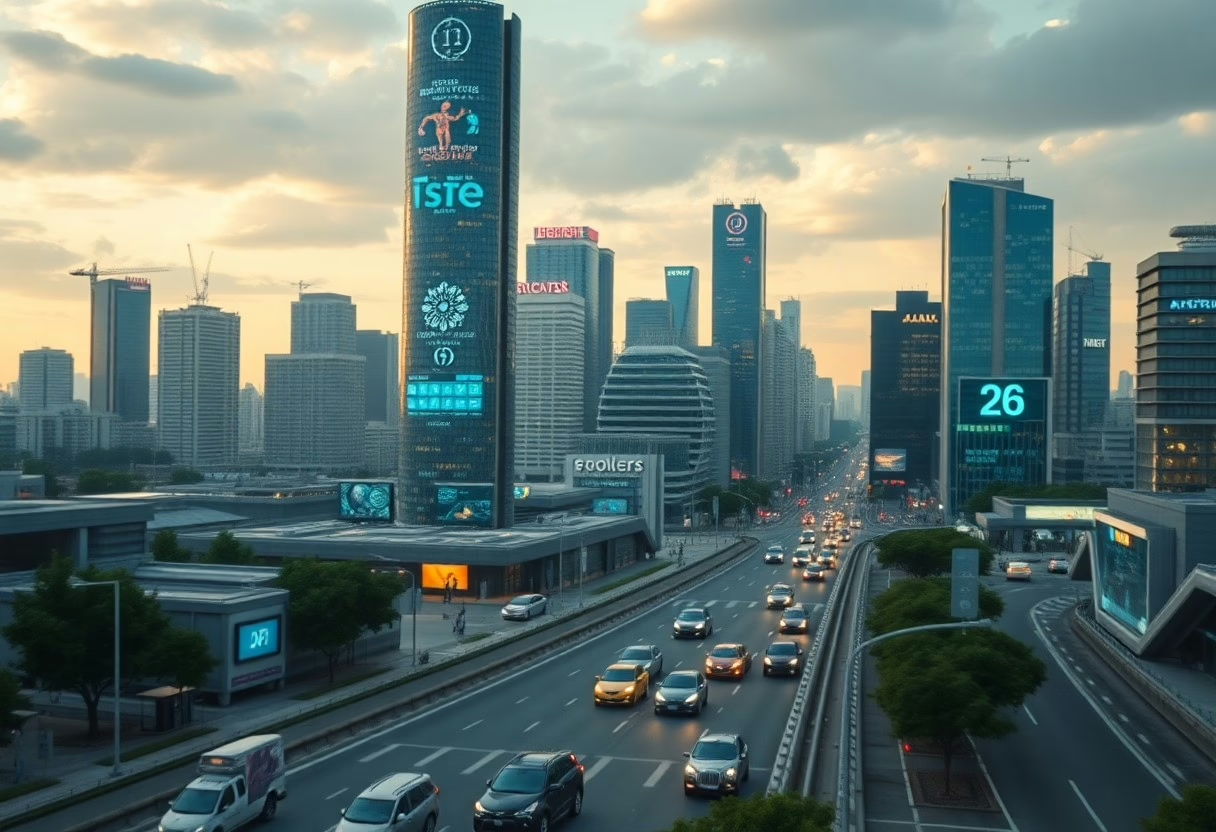You are about to embark on an intriguing journey into the world of artificial intelligence (AI) and its anticipated advancements by 2025. As technology continues to progress at a staggering rate, understanding how AI has evolved and what innovations lie ahead will empower you to navigate the future landscape effectively. This post will explore key developments in AI, giving you insight into what to expect and how these changes will impact your daily life and professional landscape in the coming years.
From Origins to Modern Breakthroughs
With the rapid advancements in technology, understanding AI’s development helps you grasp its potential from its conception in the mid-20th century to the sophisticated systems of today, as tracking key milestones illuminates the path artificial intelligence has taken, revealing the pivotal moments that have shaped its evolution. Beginning with pioneering work at Dartmouth College in 1956, AI emerged as a distinct field while the 1960s saw the development of early neural networks, followed by significant advancements in machine learning during the 1980s, and the rise of the internet in the 1990s propelled data access, while by 2010, deep learning techniques transformed industries, setting the stage for breakthroughs in natural language processing, computer vision, and robotics. Transformational moments in AI history significantly affected its trajectory through the development of deep learning in the early 2010s that enabled machines to learn from vast amounts of data, enhancing their understanding of complex patterns while this shift led to remarkable advancements such as AlphaGo, which defeated a world champion Go player in 2016, and moreover, the embrace of cloud computing provided the infrastructure needed for scalable AI solutions, fueling innovation across sectors. The move from rule-based systems to data-driven approaches marked a significant paradigm shift in AI as traditional programming struggled to handle the complexity of human reasoning, while the shift towards machine learning allowed AI to thrive on data influxes, and breakthroughs like convolutional neural networks further allowed for innovations in image recognition and natural language processing where each leap brought with it not only new capabilities but also ethical considerations, ensuring that as you explore AI’s future, you’ll remain cognizant of its implications while this evolution will only continue to accelerate, reshaping industries and redefining your interactions with technology.
Current AI Landscape and Emerging Challenges
Today’s AI landscape showcases unprecedented advancements across various sectors, driven by synergy between complex algorithms and vast datasets through innovative applications spanning healthcare, finance, and autonomous vehicles, highlighting AI’s growing role in enhancing human capabilities and improving decision-making processes while AI systems are now more integrated into everyday tools, optimizing workflows and allowing users to harness technology like never before, and the impressive rise of AI has made it a central player in not only business strategy but also personal lives. Breakthroughs in machine learning and natural language processing have reshaped the way you interact with technology in 2023 through advanced models such as OpenAI’s GPT-4 that have elevated the standards for generating human-like text, enabling seamless dialogue systems, enhanced content generation, and even emotional recognition while these innovations not only improve user experience but also facilitate complex analyses, making it easier for businesses to extract actionable insights from large sets of unstructured data. The rise of AI in 2023 has been paralleled by increasing attention to ethical considerations and emerging regulations as AI systems become more autonomous, while concerns regarding bias, accountability, and transparency have risen to the forefront of public discourse, and decision-makers are grappling with the responsibility of establishing clear guidelines to govern AI usage, including data privacy laws and usage ethics while countries around the globe are starting to implement frameworks designed to address these issues, ensuring that AI benefits society without infringing on individual rights. As AI continues its rapid evolution, the ethical landscape becomes increasingly complex through notable instances of bias in AI algorithms that have brought light to the need for transparency in AI processes, where established protocols must ensure equitable outcomes, while the European Union’s proposed AI Act aims to set strict guidelines for the development and deployment of AI technologies, focusing on high-risk applications, and this landscape is further complicated by the global nature of AI, necessitating international cooperation to harmonize regulations addressing data security, user privacy, and human rights.

Revolutionary Technologies and Future Applications
As artificial intelligence rapidly evolves, several disruptive innovations are on the horizon that promise to reshape industries and enhance everyday life, while by 2025, expect breakthroughs in AI-driven automation, expanded use of machine learning in diverse fields, and greater coexistence of AI systems with human intelligence through trends that indicate paradigm shifts in how businesses operate and how people interact with technology, ultimately driving efficiency and unlocking new potentials. Quantum computing stands to revolutionize AI capabilities by exponentially increasing processing power through harnessing qubits instead of traditional bits, while quantum computers can solve complex problems previously thought insurmountable, and this leap in computational strength allows for more sophisticated algorithms, enabling AI systems to analyze vast datasets more rapidly and accurately, paving the way for advancements in areas such as natural language processing and predictive analytics. The integration of emotional intelligence within AI systems is becoming increasingly prominent, transforming user interactions and enhancing customer experiences while by 2025, AI tools will be designed to recognize and respond to emotional cues in text, speech, and facial expressions, making them not only more relatable but also effective in contexts like customer service, education, and mental health support, and the growing emphasis on emotional intelligence will enable AI to create deeper connections and ultimately improve outcomes in various fields. As AI systems become more adept at understanding human emotions, they will leverage this capability to personalize interactions, adapt responses, and build stronger relationships with users through examples like virtual assistants that recognize frustration in your voice and proactively offer solutions or AI-driven mental health apps that tailor coping strategies based on your emotional state, while by designing technology that empathizes with human feelings, AI will not only enhance user satisfaction but also foster senses of companionship and support, changing the landscape of how you engage with machines in everyday life.
Workforce Transformation and Societal Impact
As artificial intelligence continues to evolve, its impact on job markets around the world is becoming increasingly evident while you can expect shifts where AI systems are no longer just tools but active contributors to workforce effectiveness, resulting in new job roles, responsibilities, and industries where professionals from various sectors must adapt to these changes, embracing AI not just as challenges but as opportunities to enhance productivity and creativity in the workplace. The push for automation brings with it challenges of preserving human input while you need to understand that while AI can handle repetitive tasks, its true value lies in augmenting human capabilities, and companies that successfully integrate AI technologies without replacing the human touch foster innovation and adaptability, ensuring that your skills are enhanced rather than diminished in AI-driven workplaces. To thrive in AI-centric futures, reskilling and upskilling become vital for workers across all industries while you will need to focus on developing skills that complement AI capabilities, particularly those involving creativity, emotional intelligence, and complex problem-solving, and educational institutions and businesses must collaborate to create programs that address these evolving needs, ensuring workforces that are prepared and agile in the face of ongoing technological shifts. Artificial intelligence is poised to revolutionize critical sectors such as healthcare and education, fundamentally changing how services are delivered through AI enhancing diagnostics, personalizing treatment plans, and streamlining administrative processes in healthcare, thereby improving patient outcomes, while in education, intelligent tutoring systems and adaptive learning technologies can provide tailored experiences that cater to individual learning needs, fostering greater engagement and retention where these transformations not only enhance efficiency but also broaden access to vital services for diverse populations.
Summing up
From above, you can see that the evolution of artificial intelligence is poised to bring unprecedented changes by 2025 while as you navigate this rapidly advancing landscape, it’s vital to stay informed and prepared for innovations in automation, machine learning, and human-AI collaboration. Embracing these advancements will not only enhance your productivity but also open new avenues for creativity and problem-solving, while by understanding the trajectory of AI, you will be better equipped to leverage its potential and shape your future in a world increasingly influenced by intelligent technology.



